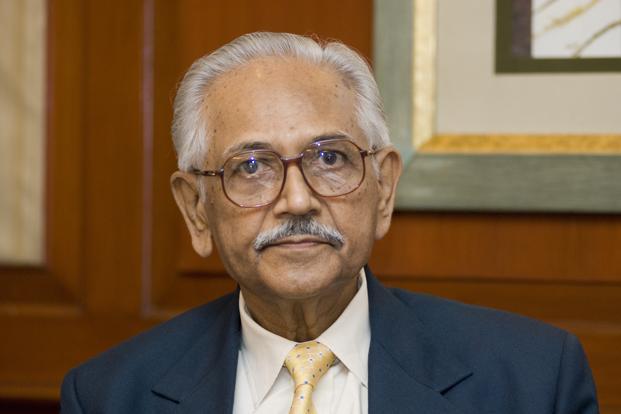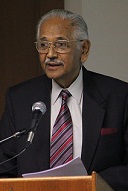The Malaysian Bar – In Memorium: Justice J S Verma
In Memoriam: Justice J S Verma Wednesday, 24 April 2013 01:57pm Contributed by Christopher Leong, President, Malaysian Bar Justice J S Verma, the former Chief Justice of the Supreme Court of India, passed away on 22 April 2013

| In Memoriam: Justice J S Verma |
| Wednesday, 24 April 2013 01:57pm | |
 Contributed by Christopher Leong, President, Malaysian Bar Contributed by Christopher Leong, President, Malaysian BarJustice J S Verma, the former Chief Justice of the Supreme Court of India, passed away on 22 April 2013 after a short illness.
Justice J S Verma was an eminent and distinguished jurist. He was also a good friend of the Malaysian Bar, and was no stranger to our shores. His sterling legal and judicial career is renowned and marked with many accomplishments and accolades.
Justice Verma was born on 18 January 1933. He obtained the degrees of Bachelor of Science and Legum Baccalaureus, or LLB, from the Allahabad University, and subsequently enrolled at the Bar in 1955. He was appointed a Judge of the High Court of Madhya Pradesh in 1972, its Chief Justice in 1985, and was subsequently appointed the Chief Justice of the High Court of Rajasthan in 1986.
Justice Verma was twice the Acting Govenor of Rajasthan between 1987 and 1989.
In 1989, he was appointed Judge of the Supreme Court of India, and was on 25 March 1997 appointed the Chief Justice of India. Justice Verma was also the Chairperson of the National Human Rights Commission of India from 4 November 1999 to 18 January 2003.
During his time on the Bench, Justice Verma was known for his judicial integrity, intellect and progressiveness, particularly in the field of Constitutional law. His judgments in cases like Vishaka v. State of Rajasthan AIR 1997 SC 3011 and Nilabati Behera v. State of Orissa AIR 1993 SC 1960, to name but two, are landmark pronouncements in their progressive interpretation and application of the Constitution.
In Vishaka, the Constitutional right to life and guarantee of gender equality were read to include the right of women to work and earn a living with human dignity, free from sexual harassment and abuse. In construing these provisions, it was held that:
In Nilabati, the Supreme Court established: (a) the right of a person to claim in public law for compensation for contravention of human rights and fundamental freedoms guaranteed by the constitution, as a remedy for enforcement and protection of such rights, and that this right is distinct from any right of action in tort in private law; and (b) that the burden of proof in cases of death in custody is reversed and that it is the responsibility of the detaining authorities to proffer a plausible explanation for the death which would be consistent with their innocence.
Justice Verma’s judgement in Nilabati has been used in several jurisdictions, not least by us, the Malaysian Bar, when we cited and relied upon it in our submissions in the Royal Commission of Inquiry into the death of Teoh Beng Hock in 2011.
Justice Verma was also the Chairman of the “Panel of Eminent Persons to Review the 1988 Judicial Crisis in Malaysia”, established on 22 September 2007 jointly by the Malaysian Bar, LAWASIA, the International Bar Association and Transparency International (Malaysia). The crisis saw the dismissal of then-Lord President Tun Salleh Abas and two Supreme Court Judges, and precipitated a long period of disenchantment and fight for justice. The work and report of Justice Verma and the other members of the Panel of Eminent Persons, dated 26 July 2008, was an important factor in the government’s subsequent decision to apologise to and compensate the wronged judges.
Justice J S Verma delivered the Inaugural Raja Aziz Addruse Memorial Lecture, entitled “Humane Governance: Imperative for Human Rights”, at the Bar Council on 29 October 2011.
The Malaysian Bar conveys its deepest sympathies and heartfelt condolences to Justice J S Verma’s family and loved ones on their bereavement.
Christopher Leong
President
Malaysian Bar
24 April 2013
|
http://www.malaysianbar.org.my/in_memoriam/in_memoriam_justice_j_s_verma.html

